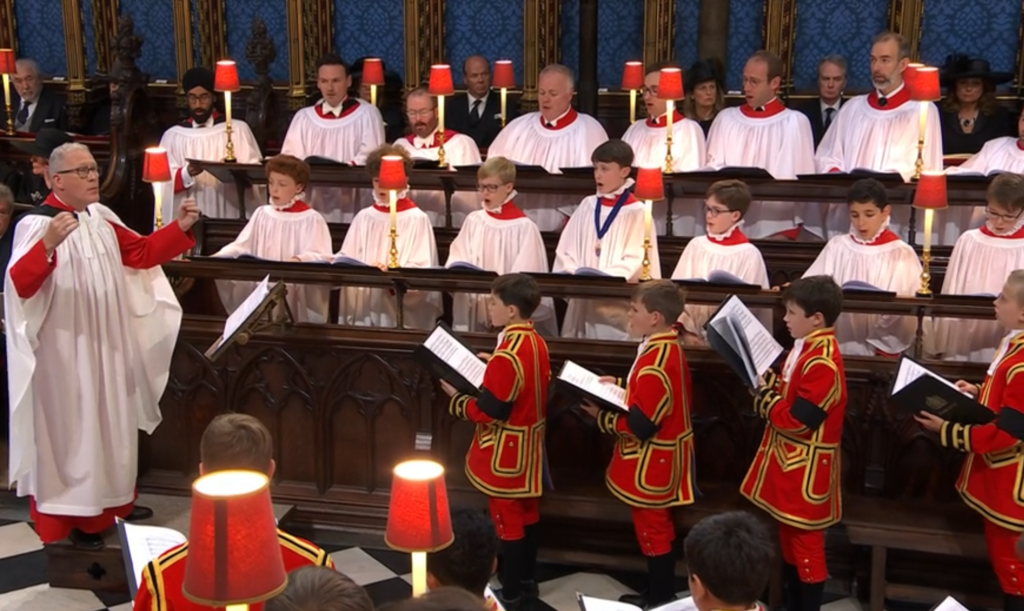Many of us who watched the funeral service of Queen Elizabeth II on 19 September will have been moved by the thoughtful choice of music old and new. Highlights included new settings by the Master of the Queen’s (now King’s) music, Judith Weir and Scottish composer James MacMillan, as well as an enormous a range of music by British composers over the centuries..
Before the service, and with the the muffled tolling of the tenor bell in the background, Matthew Jorysz, Assistant Organist at Westminster Abbey performed music by Orlando Gibbons (1583-1625), Ralph Vaughan Williams (1872-1958), Peter Maxwell Davies (1934-2016), Harold Darke (1888-1976), Healey Willan (1880-1968), Herbert Howells (1892-1983), Charles Villiers Stanford (1852-1924), Malcolm Williamson (1931-2003) and Edward Elgar (1857-1934).

The service itself was sung by the Choir of Westminster Abbey and the Choir of the Chapel Royal, St James’s Palace, under the direction of James O’Donnell, Organist and Master of the Choristers.
The new work by Master of The King’s Music, Judith Weir, was a setting of Psalm 42: Like as the hart desireth the water-brooks. The other new work was a setting by Sir James MacMillan CBE (b 1959) of texts from Romans 8: 35a, 38b-end, Who shall separate us from the love of Christ?
Music for the Sentences reflected music by former organists of Westminster Abbey including William Croft (1678-1727) and Henry Purcell (1659-95).
Music associated with the life of Queen Elizabeth was also featured including The hymn The Lord’s my shepherd which was sung at Prince Philip and the Queen’s wedding in 1947. This setting of Psalm 23 is attributed to Jessie Seymour Irvine (1836-87) with harmony by David Grant (1833-93) and with a descant by William Baird Ross (1871-1950). O Taste and see how gracious the Lord is‘ was also performed; it was composed by Ralph Vaughan Williams for the Queen’s Coronation in 1953.
Other hymns were St Clement: The day thou gavest, Lord, is ended which was sung with music by Clement Scholefield (1839-1904) arranged by James O’Donnell (b 1961) and the rousing Blaenwern by William Rowlands (1860-1937) in an arrangement by James O’Donnell.
Following the sermon by the Most Reverend and Right Honourable Justin Welby, Archbishop of Canterbury, Primate of All England and Metropolitan, the choir sang My soul, there is a country Far beyond the stars from Songs of Farewell by Hubert Parry (1848-1918).

As the service came to a close, The Last Post was sounded by the State Trumpeters of the Household Cavalry Led by Trumpet Major Julian Sandford from the steps of the Lady Chapel. After a two-minute silence the Reveille was sounded.
One of the most moving moments was when, after Gordon Jacob’s (1895-1984) astonishing arrangement of the National Anthem: God Save The King, The Queen’s Piper, Warrant Officer Class 1 (Pipe Major) Paul Burns, played Sleep, dearie, sleep gradually fading away into the distance.
Written by Nicholas Keyworth

